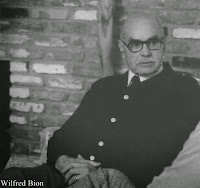War Memoirs 1917-1919 by Wilfred R. Bion
Bion's War Memoirs is perhaps the most exceptional piece of autobiography yet written by a psychoanalyst. The first section of the book is documentary, consisting of the entire text of the diaries which Bion wrote as a young man to record his experiences on the Western Front in 1917-1919, and this volume also includes the photographs and diagrams with which he illustrated his recollections. The diaries are followed by two later essays, in which he reflects upon his wartime experiences.
Wilfred Bion has long been renowned as one of the great psychoanalysts, his career spanning much of the twentieth century and making him one of the most influential names in the field.
Bion's war diary, which he kept with him during combat, covered his years fighting in France during the First World War. He was just twenty years old when he began writing it. War Memoirs constitutes the final part of Bion's autobiography. It comprised three hardbound notebooks written soon after he had been demobilized from the Army and had begun his studies at Queen's College, Oxford. He wrote it for his parents as compensation for having found it impossible to write to them during the war. It has been aptly described by Winship (1999) as a 'book about the blood and guts of a youth who cut his teeth in the most devastating of circumstances'.
The actions he describes in War Memoirs are terrifying and detailed. They form the basis for his later understanding, as a psychiatrist and psychoanalyst, of the inner torments faced by the patients he treated. In Band of Brigands: The First Men in Tanks (2009), Christy Campbell, referring to a segment of Bion's descriptions, wrote: 'Bion... looks repeatedly at how sentient human beings continue to operate when everything around them is dissolving into violent chaos'.
Many years later, Bion returned to his youth and penned two pieces reflecting upon his time at war, which make up the second part of this book. These meditations are influenced by his psychoanalytic training, and show how his approach to psychoanalysis was influenced by his wartime experiences. Together, these diaries and essays provide an extraordinarily vivid and moving picture of war and its long-term effects.
 |
| Bartleby, the Scrivener: “I would prefer not to.” |



